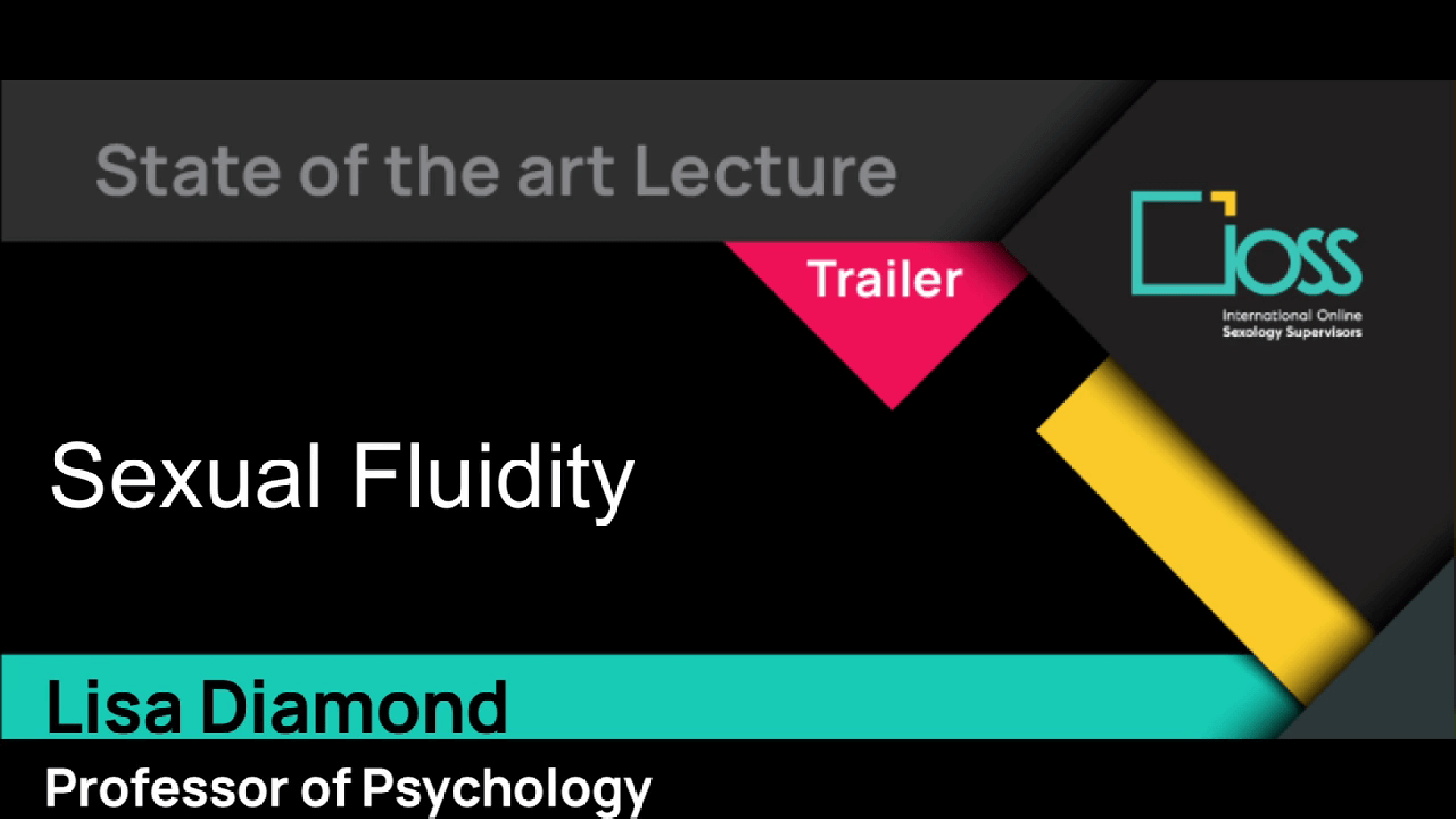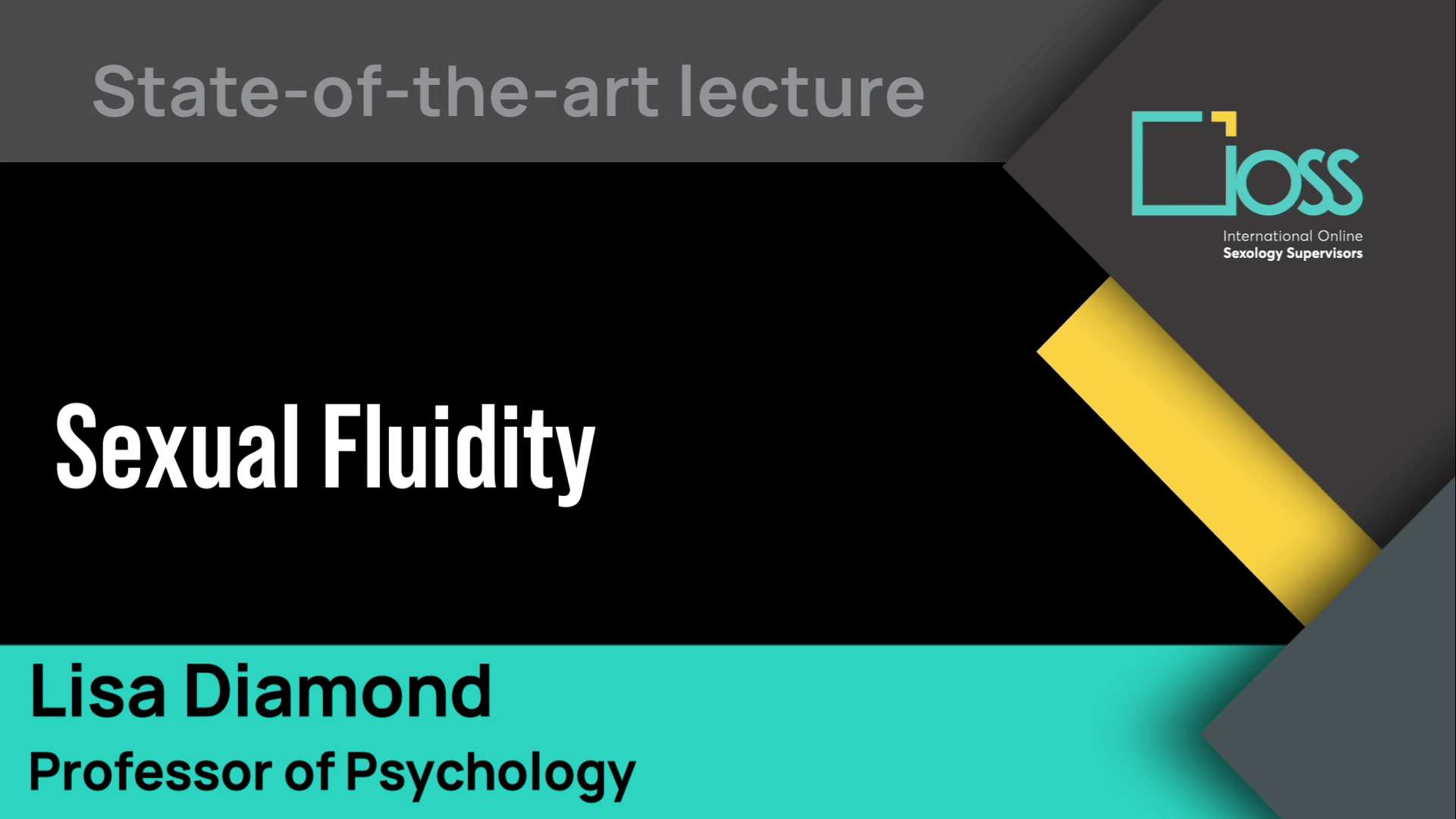Sexual Fluidity
1h 10m
Lisa Diamond
Professor of Psychology and Gender Studies
 Trailer
Trailer Get AccessFull Video
Get AccessFull VideoContent and Aim: One of the most important shifts in scientific thinking about sexuality and sexual orientation concerns sexual fluidity, which denotes the capacity for individuals to experience changes in same-gender and other-gender sexual desire and responsiveness at different stages of life or within different situational or interpersonal contexts. In this webinar, Prof. Lisa Diamond reviews contemporary scientific findings on the phenomenon of sexual fluidity and contemporary debates over its conceptualization and measurement: Is it simply change over time in sexual expression? Is it situational variability in sexual responsiveness? Is it the capacity to respond erotically to one’s “less preferred” gender? Prof. Diamond outlines the relevance of these questions for clinical approaches to sexually-diverse populations, as well as their relevance to contemporary understandings of gender fluidity. She also reviews research on individual differences in sexual and gender fluidity, with the aim of providing clinicians with meaningful guidance as to the unique psychological challenges they face.
Learning objectives:
- Understanding the phenomenon of sexual fluidity and how it challenges traditional categorical understandings of sexual orientation.
- Understanding differences and similarities between sexual fluidity and bisexuality, and between sexual fluidity and gender fluidity.
- Understanding current scientific explanations for sexual fluidity and gender fluidity.
- Reviewing the implications of sexual fluidity and gender fluidity for the clinical treatment of sexually diverse and gender diverse populations.
Produced in 2023

Lisa Diamond
Professor of Psychology and Gender Studies
Lecturer
Lisa M. Diamond is a Distinguished Professor of Psychology and Gender Studies at the University of Utah and president-elect of the International Academy for Sex Research.
For nearly 3 decades, she has studied the development and expression of gender and sexuality across the life course.Her current work focuses on the biobehavioral mechanisms through which social stigma, social stress, and social safety shape the health and well-being of sexually-diverse and gender-diverse individuals at different stages of development. Dr. Diamond is best known for her research on sexual fluidity, which describes the capacity for individuals to experience unexpected shifts in sexual identity and expression over time. Her 2008 book, Sexual Fluidity, published by Harvard University Press, has been awarded the Distinguished Book Award from the American Psychological Association’s Society for the Study of LGBTQ Issues. Dr. Diamond is also co-editor of the first-ever APA Handbook of Sexuality and Psychology, published in 2014, and is a fellow of two divisions of the APA. She has published over 140 articles and book chapters and has been invited to present her research at over 150 national and international Universities and conferences. Dr. Diamond has received awards for her work from the Developmental Psychology and LGBT Psychology Divisions of the APA, the Society for Personality and Social Psychology, the International Association for Relationship Research, the Society for the Scientific Study of Sexuality, and the Society for the Psychological Study of Social Issues. Her current work focuses on the importance of social safety (unconditional social connection, inclusion, and protection) for the human immune system and the negative long-term health implications of living with chronic unsafety in one’s day-to-day life. Dr. Diamond also studies religious trauma among sexually-diverse and gender-diverse individuals raised in the Mormon church and the factors that promote adjustment and acceptance among this population and their families.


